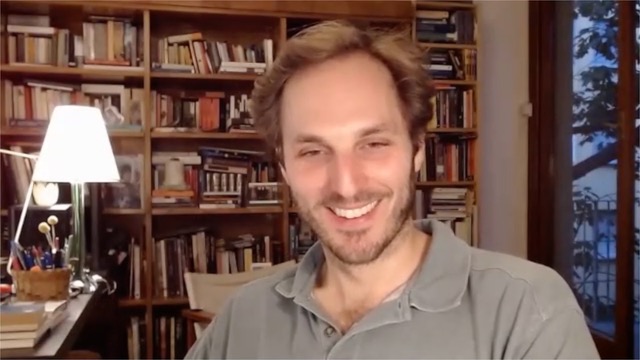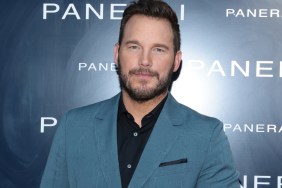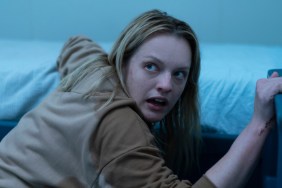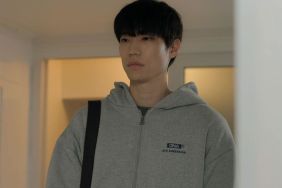Beckett, the second feature film by Ferdinando Cito Filomarino is now streaming on Netflix. The film stars John David Washington as an American tourist that winds up going on the run in Greece after a tragic accident plunges him into a political conspiracy.
ComingSoon Editor-in-Chief Tyler Treese spoke with Beckett director Ferdinando Cito Filomarino about the film’s themes, John David Washington’s performance, and much more. Check out the video interview below or read the full transcript.
Tyler Treese: Beckett is a really interesting film and so much of it depends on John David Washington’s performance here, and he really excels. It amazed me that he was a football player for the longest time because he’s such a natural on camera and performs so great in this film. Can you speak to just working with him and how he was able to really carry that performance?
Ferdinando Cito Filomarino: Well, working with him was easy because, first of all, he reacted to the material, to the script as instinctively, he liked it. There was something about this character and the fact that this character was somewhat of a normal person and not a trained killer or anything of the sort that resonated with him. And then we have the most beautiful meeting. And then as I was saying, it’s easy to work with him because he becomes incredibly passionate and like me, he becomes kind of obsessive almost. So our conversations about how to portray this character where were long and, and have many different types and stemmed from many different references that I put on the table, but where they’re at the movies or other things. Then he drew from his sports background in terms of the physical element, what you believe to be your limits, and then how instinct kicks in and fuels something that you were not expecting.
All of those things are stuff that he absolutely brought and enriched the character with, including his background in sports. Having said that, to me he’s the most fine, absolutely meticulous performer. We can tell also from the variety of movies that he makes and the variety of characters that he portrays to me, I was just lucky to work with him and to, for him to have this sort of two-fold performance, which has half the dramatic crisis that the characters going through and the other half is this the more physical aspect of the genre elements of the movie,
Something I really liked was that the Greek isn’t subtitled. It added a lot as an American because I can kind of put myself in Beckett’s shoes. He’s confused. He doesn’t really know what’s all going on. That kind of adds to that dimension. But if you do understand the language there, then you’re getting a whole another dimension to the film. So was that a creative choice?
Absolutely. The premise was to have a relatability with this character, somebody that you could almost feel like, what would I do when that situation, as opposed to the kind of superhuman, slightly elevated tone of other movies in this genre, I liked the idea of, of experiencing it together with him and that entailed both sort of discovering elements of the plot of what is happening to him alongside him and also not being able to decipher what’s what people are saying in Greek simply because he doesn’t speak Greek. And that definitely informed the subjective experience.
I saw the script came from an idea from yourself. Greece is such a beautiful locale through the film. We get to see so many great sites throughout. Why did you want to set it in Greece? And how’d you come up with this idea?
Well, the movie needed a couple of things. Most importantly, one was a country that was in a sort of turmoil and a sort of crisis that could stage the things that happened in the plot, which I don’t want to spoil too much, but that definitely had a moment of important protesting of people, going in the streets to shout out what they’re thinking. Then the other thing that we needed was a variety of rich landscapes because of course, the movie is on the road so much. One way I thought to convey the sheer amount of travel that our character goes through was to change up the landscape in Greece has a mainland, which is undiscovered in international cinema basically, and which offers so such a wide variety of rich, very dramatic landscapes. So it just was a perfect fit for what we were looking for.
Beckett gets beaten up during the film quite a bit. He gets shot, he gets stabbed, he gets paced. He’s fallen from all kinds of sorts of Heights. How fun was it to get these stunts set up in the shoot, these action scenes?
It was fun because we had such a peculiar character for the type of stunts that they were. We want it to maintain coherent this idea that he’s not a trained fighter. So he will tackle fights as somebody who doesn’t know how to fight and in a way clumsy. But then, of course, he also has this survival energy, which gives him that much extra energy. That said, we also want it to keep track of what happens to a person who goes through this stuff. He sweats, he’s in pain. We keep track of that pain. So all those things were made the stunt work that much more interesting because we kept track of the character and what he was going through as a real human being, as opposed to a superhuman hero of sorts who kind of shrugs it off and keeps running.
To top that off John David basically wanted to do all of his own stunts with the exception of a couple of things that were just too dangerous for him to do, which would have been a legal problem. He does everything as you see in the film, he gets run over by a car, and stuff like that. So that made it that much more real. We were envisioning this physical toll of going through all those experiences.
I loved how they were shot because as you said he’s kind of an everyman character. He’s not falling with grace. It’s very rough and it’s very fun to watch.
Yeah. This again, it was the central interest, in my opinion, is how does a person who is the way we present them in the beginning of the film? How does he get through such an extreme situation while also dealing with his own personal crisis and that this sort of informs so many things throughout the story and even down to the way he falls. It’s very much an adventure as lived through Beckett.
It’s such an interesting story too because after what happens in the beginning, Beckett’s in a really rough situation. He’s looking at all these pills, he kind of doesn’t really have that will to live. Then we see him go through so much, going back to trying to do something bigger than him, try to be selfless. Can you talk about him kind of finding that desire to live throughout the story?
Well, there is something interesting about his journey, which begins in a place. We meet him in normal life, and we do see this, this man who kind of lets life happen to him in a way. It’s interesting in the way that he is basically perfectly unfit to experience the stuff that goes on in this story. So, in a way I feel, I find that that the fact he, and the story being so opposite to each other, that clash, that intensity definitely puts him in a place where he has to confront his way of being. Eventually, as we’ll see later in the movie, I don’t want to spoil too much. He decides that he needs to change that and that inverts some of his energies in some very fiery ways let’s say.
The film at times it has such a grim look at kind of like politics. You’re dealing with themes like fascism, there’s corruption in different parts of the government. And then, but there’s also this hopeful human element to it. Maybe it’s too simplistic to try to like boil it down to being gloomy or optimistic, but how do you kind of view the outlook of this film just on society as a whole? Because it’s very true to life to where it’s all over the place and it gives you a lot to think about.
I agree with you. It’s not simplistic. There’s this sense of let’s say distrust in some of our establishments and some of what we perceive as the news, the real news if that’s even a thing anymore. We do experience that nowadays, but what happens in the film to this character who is in a place where he’s basically oblivious to what’s going on, he’s a tourist who doesn’t really know what’s going on in Greece. He meets people who are activists, and who would, this would this pool of confusion and national and international problems, they decide to engage in action, to organize, to find a spirit of let’s be heard and engage, and they occupy the streets and talk and scream and shout. I guess in that way, yeah, I absolutely do believe that no matter what our premise or what our distrust in that without force of engagement, there can be a positive outcome.
They’re not really the key moments, but there’s a couple of scenes that feature animals. Do you like shooting with the animals or is it very difficult? I often hear that it’s very hard.
It’s extremely hard, but I love it anyway. There’s something that you capture precisely because they’re out of control, which is what’s hard. There is something about capturing what animals do that feels that much more authentic and strong specifically. Although I, I have worked with animals before, both in the stuff I’ve done before with a fox, actually I use the same fox, both in, in a short film. I did. And in my first feature, the same fox came back to shoot. But that said, when I went around Greece, I was just scouting for locations. I saw so many stray dogs. It was unbelievable. And they just, they would just sort of roaming around doing their own thing, walking from town to town. And I felt among the million other things we needed to be authentic, we needed dogs in the movie, otherwise, it wouldn’t be believable. So by any means necessary, we managed to get some. Then a couple of others literally just walked into the shot. Surprisingly the times when that happened was in Athens when we were shooting the rally scenes.
That’s so funny about the fox. I’ve heard of directors working with the same actors repeatedly, but never the same fox. I think you might be the first.
Well, look, it serves two different purposes and through different projects, but I had the collaborator already. This woman who works with animals and is great. I was like we go safe. We call her again and it’s perfect.
You worked as a second unit director on Call Me By Your Name, and that has been so well received and so beloved. A couple of years removed from that, how do you look upon the legacy of that film? It rocketed Timothée Chalamet’s career and it touched so many people.
Look, I have to say, I did do second unit director on the film, but it was very little. The movie was a small movie. I just did a couple of days of very simple things. That said, obviously, the legacy of the movie is so far-reaching because of what the film represents, I think. Because it’s an amazing work of craftsmanship. So the two things together make something that stays, that has an impact and then stays to the ages.
You’ve done a feature before this. What were the biggest lessons you learned from your previous outing that really helped you with Beckett?
I would say one thing is the importance of sleep. The other thing is to always make sure, to have amazing collaborators that can bring everything you cannot think of. Because I worked years on this movie and I thought about everything that we could do to enrich it, but then from smaller projects I did before, I already noticed how no matter how much you prepare, if you have amazing collaborators by your side, not only do the more ambitious things have that much more manpower and experience but also ideas, things you couldn’t think of, no matter how much you prepare [they come up with] because they simply come from a different background, a different mind. So I always find it interesting and crucial to find the best pool of people to work with depending on what project it is.
The film coming out on Netflix is so exciting. How do you feel that knowing that so many millions of people will immediately have access to it rather than having to buy a ticket. How exciting is it that potential reach through our streaming partner?
Look, it’s amazing because this is my second feature. My first feature we did a big festival tour, but it was only released in Italy. So for my second feature to instantaneously have access to millions of people is basically unimaginable. And it’s a privilege that I can’t believe I have. I feel like also because of the moment we’re living in it’s the most powerful tool I could ever imagine to have to host my film.










